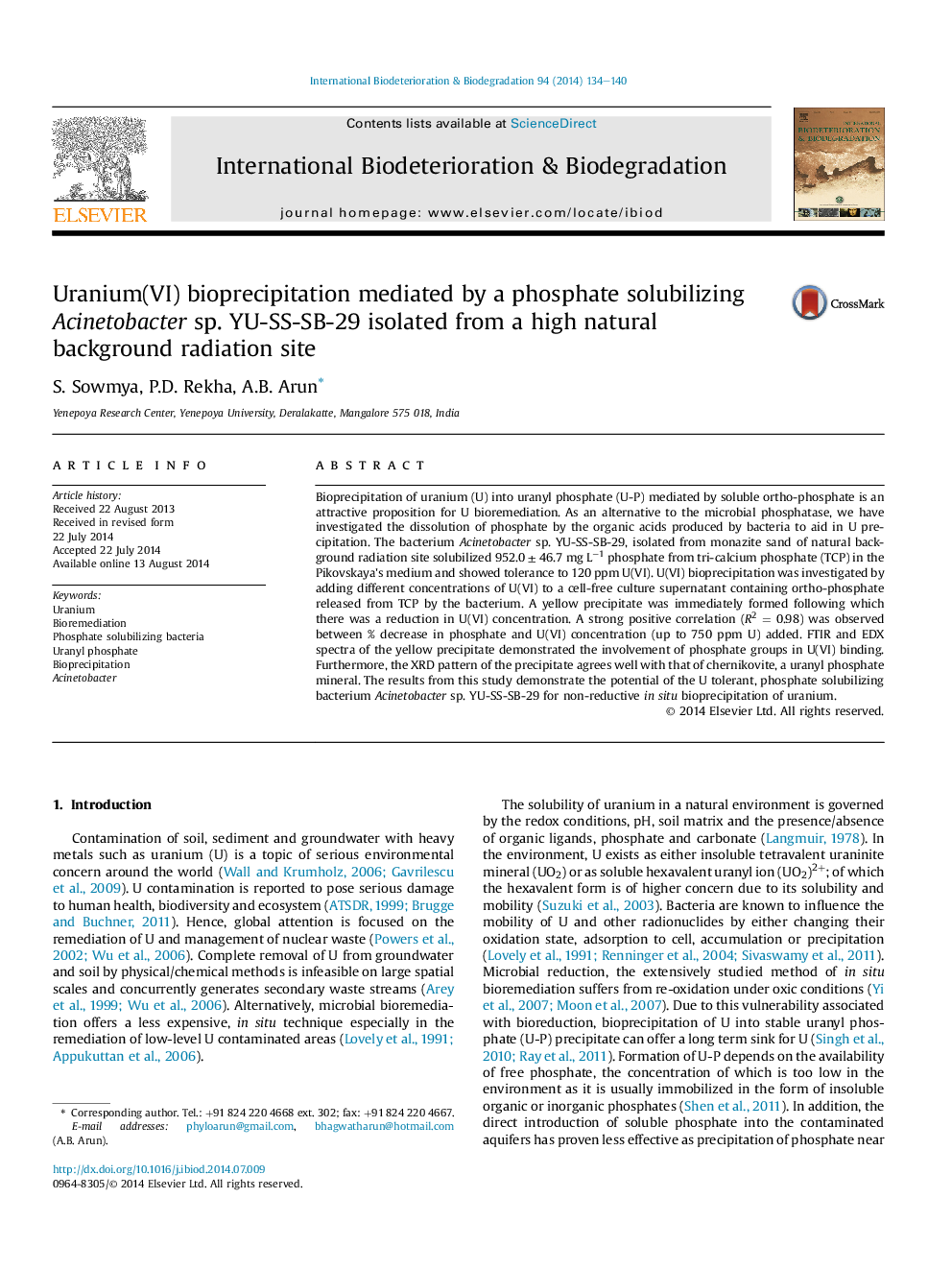| کد مقاله | کد نشریه | سال انتشار | مقاله انگلیسی | نسخه تمام متن |
|---|---|---|---|---|
| 4364749 | 1616322 | 2014 | 7 صفحه PDF | دانلود رایگان |

• We investigated bioprecipitation of uranium by phosphate solubilizing bacteria.
• Phosphate solubilization was due to the organic acids released by the bacteria.
• Reduction in the concentration of uranium was investigated by ICP–AES.
• Precipitate formed was characterized by FTIR, EDX and XRD analysis.
• Formation of uranyl phosphate can lead to long term remediation of uranium.
Bioprecipitation of uranium (U) into uranyl phosphate (U-P) mediated by soluble ortho-phosphate is an attractive proposition for U bioremediation. As an alternative to the microbial phosphatase, we have investigated the dissolution of phosphate by the organic acids produced by bacteria to aid in U precipitation. The bacterium Acinetobacter sp. YU-SS-SB-29, isolated from monazite sand of natural background radiation site solubilized 952.0 ± 46.7 mg L−1 phosphate from tri-calcium phosphate (TCP) in the Pikovskaya's medium and showed tolerance to 120 ppm U(VI). U(VI) bioprecipitation was investigated by adding different concentrations of U(VI) to a cell-free culture supernatant containing ortho-phosphate released from TCP by the bacterium. A yellow precipitate was immediately formed following which there was a reduction in U(VI) concentration. A strong positive correlation (R2 = 0.98) was observed between % decrease in phosphate and U(VI) concentration (up to 750 ppm U) added. FTIR and EDX spectra of the yellow precipitate demonstrated the involvement of phosphate groups in U(VI) binding. Furthermore, the XRD pattern of the precipitate agrees well with that of chernikovite, a uranyl phosphate mineral. The results from this study demonstrate the potential of the U tolerant, phosphate solubilizing bacterium Acinetobacter sp. YU-SS-SB-29 for non-reductive in situ bioprecipitation of uranium.
Journal: International Biodeterioration & Biodegradation - Volume 94, October 2014, Pages 134–140